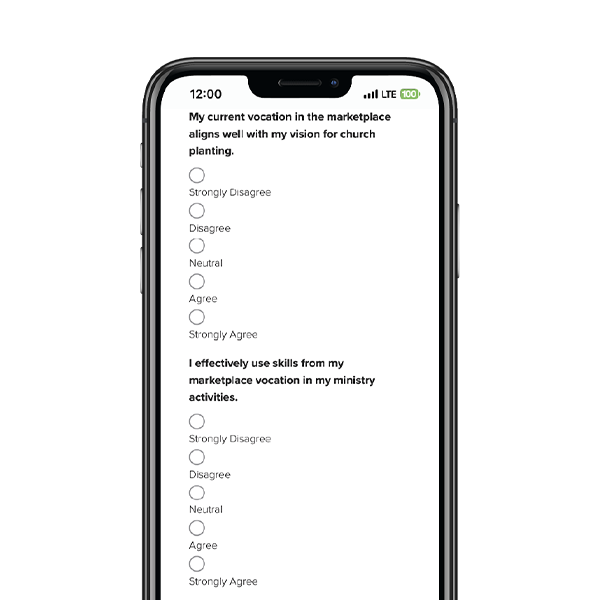When I chose to preach through Ephesians this year, I knew there would come a time where I’d need to walk our church through tough texts. For instance, I knew Ephesians 5:22–30 was in front of us.
You know the passage, right? Paul calls the Ephesians to live wisely in an unwise and evil world (5:15–16). How? By living in light of the Lord’s will (5:17) and being filled by the Spirit (5:18). The results of being filled by the Spirit is that people sing to one another and to the Lord (5:19), give thanks to God through Jesus (5:20), and submit to one another (5:21). That last part is further explained in 5:22–6:9.
What does submission to one another look like? It looks like glad-hearted submission of a wife to the loving leadership of her husband (5:22–33). It looks like children obeying their parents and servants obeying their masters (6:1–6:9). Submitting to one another doesn’t mean everyone submits to everyone, but everyone aligns themselves to God’s sovereign order in all spheres of life.
When it comes to a wife submitting to her husband, I’ve stepped back more than once and wondered why I keep having the nagging feeling that I must rescue Paul or apologize for the complementarian view of marriage he presents. As I look toward Sunday, thinking of all the people in my church, why do I continually think about how I can make Paul more palatable? Where does this feeling come from?
What’s my problem with Paul?
It struck me this morning while having coffee with my wife that one reason Paul’s words make me uncomfortable is because we’ve (I’ve?) so often misused and abused Paul. It’s the failure of men and women to rightly read and apply Paul’s complementarianism that messes with my mind. This passage poses difficulties for me because we’ve so often failed to reflect God’s joy-producing designs. In other words, one reason I have a nagging feeling or desire to step back and nuance almost every sentence is because so much has been misunderstood, misapplied, and patently abused.
Men who are called to servant-hearted and life-sacrificing leadership are sometimes passive, failing to lead their families. At other times, they’re tyrants, lording it over their wives and families. Both passivity and tyranny fail to reflect biblical complementarianism. Wives, too, struggle to live out God’s grand vision. Ever since the Garden, women have desired to rule over their husbands (cf. Gen. 3:16) and turn God’s order on its head. At other times, women have slipped into passivity, seeing the call to submission as a call to fade away into silence. Neither is the biblical picture (cf. Prov. 31). Both men and women have failed to paint a picture of a happifying complementarianism.
Then there is the culture around us. We live in an age where feminism, the empowerment of women, reigns. In one sense, this is a great time to be alive. We are witnessing women regaining a voice that has, regrettably, been lost. Women like Jen Wilkin, Jackie Hill Perry, Trillia Newbell, Rosaria Butterfield, and a host of others are speaking prophetically into the lives of women and men. May their tribe increase! However, there is a different type of feminism that is on a mission to undermine male leadership, particularly in the home and in the church. To speak of male headship in any sphere, according to this specific brand of feminism, is to promote a brand of patriarchy that demeans women and leads to oppression and abuse.
Thus, the sensitivity I have to Ephesians 5, in some sense, stems from how we’ve failed to read Paul rightly and apply him appropriately — and you can include self-professed complementarians in that charge! In another sense, I know a complementarian reading of Ephesians 5:22–30 (cf. 1 Cor. 11:3, Col. 3:18–19) is not in step with the prevailing culture. We are told that complementarity is an oppressive position that leads to pain and sorrow. Our evangelical failures and the cultural situation create a nagging feeling that makes it seem as if I should apologize for Paul.
Come Sunday, what’s my job?
However, here is what I know. I do not need to go into the pulpit trying to make Paul more palatable or apologize for Complementarianism. Paul lays down in plain speech God’s creational design for marriage. A wife is called to submit to her husband as he sacrificially loves his bride. Because this is from God, we know it is for our good and his glory (see Rom. 8:28). Therefore, my job on Sunday as I open the ancient text is to help God’s people see and savor the happifying truths inside, then to go and live in light of what they’ve seen. This is the only pathway to God-centered, Christ-exalting, and Spirit-produced joy.
In this sense, I want to brush away the noise in our culture and help us joyfully embrace a complementarian view of marriage. Furthermore, I hope to explain the passage in such a way that clears up the confusion and leads us to love the vision Paul has given so we can order our marriages accordingly. Only then will the relationship of a husband and a wife paint a beautiful picture of Christ and his church.
I know there are difficult texts to preach. Ephesians 5:22–30 is one of them. However, in the end, though we might need to repent of how we’ve misunderstood and misapplied this text, we will never need to apologize for Paul’s complementarian vision for marriage. His vision comes from God, who is for our good and for the glory of Christ, the head of the Bride.
This blog originally appeared at theologyalongtheway.org.,
Published August 13, 2018




